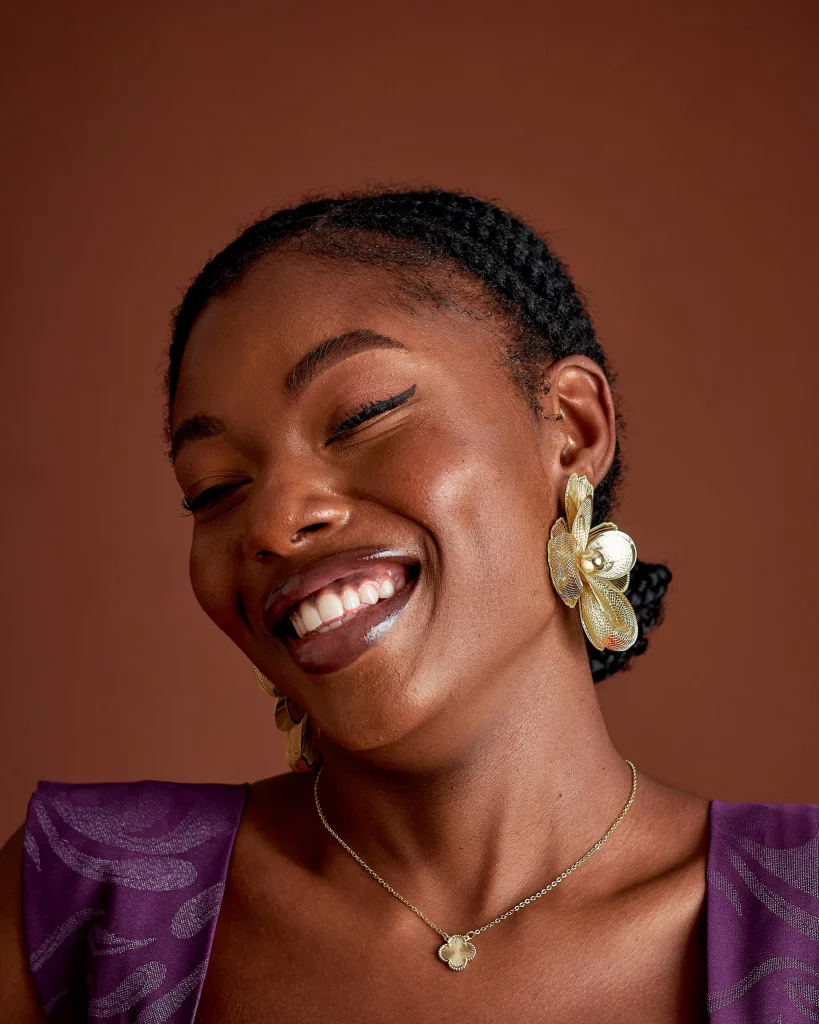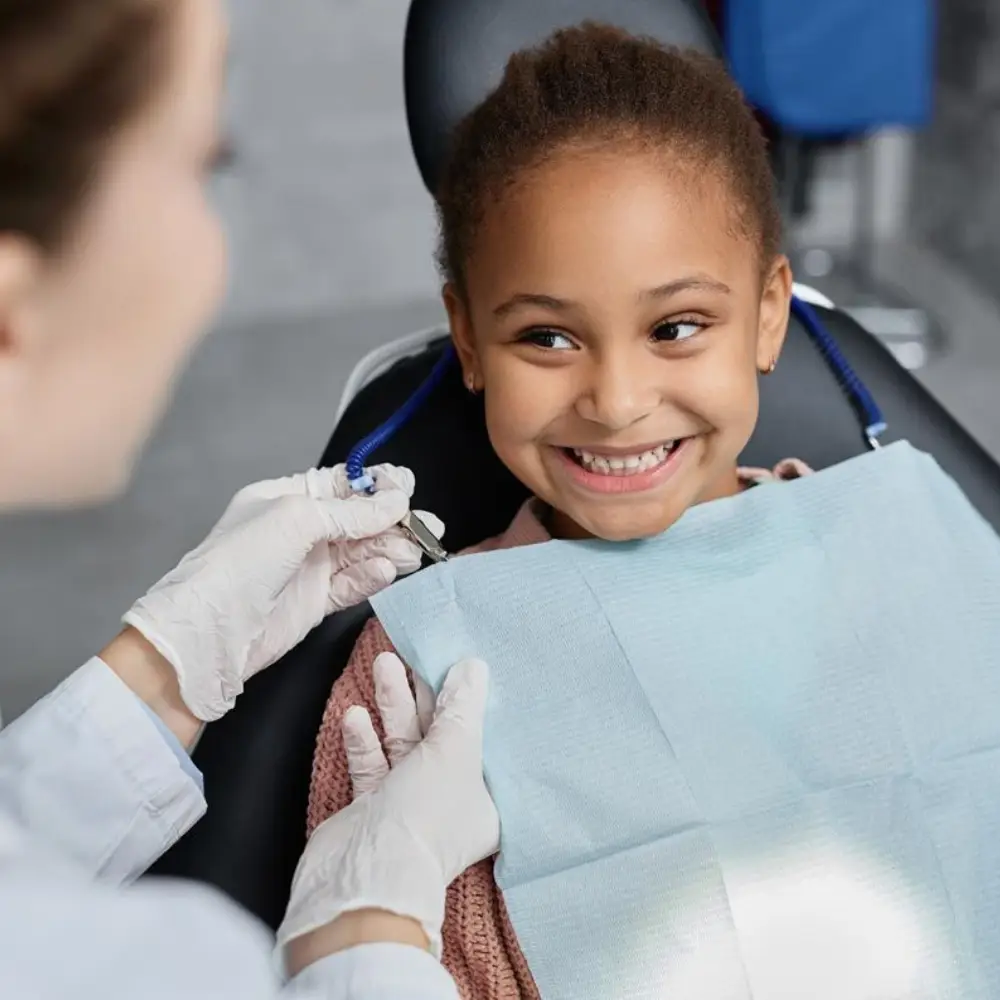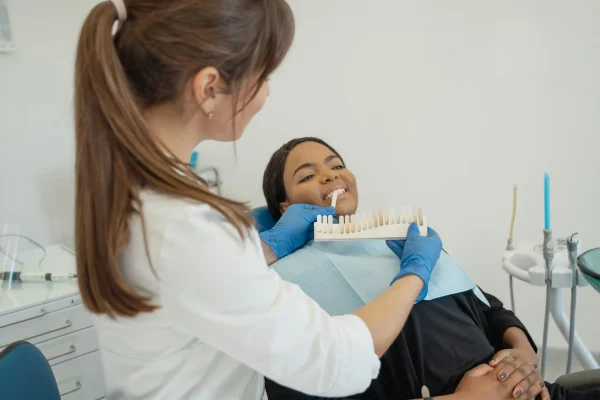In contemporary society, particularly within the millennial demographic, the significance of an appealing smile extends well beyond mere oral health. Increasingly, a bright, well-maintained smile is perceived as an indicator of self-confidence, personal care, and, notably, a component of one’s personal brand in digital and professional spaces. This shift in perception has contributed to a marked increase in the popularity of cosmetic dentistry among millennials. Treatments such as teeth whitening and Invisalign have become commonplace, reflecting a broader redefinition of dental aesthetics.
The underlying motivations for this trend are multifaceted, encompassing aspirations for enhanced self-esteem, social media presentation, and professional advancement. Consequently, the pursuit of dental enhancement among millennials is informed by both personal and societal factors, illustrating the evolving role of dentistry in modern life.
The Digital Influence: Social Media and Self-Image
Let’s be real—millennials grew up glued to phones, swiping through Instagram before breakfast, and learning TikTok dances instead of, you know, cursive. Social media’s basically their second language. The catch? Everything’s about looks. If your smile isn’t on point, good luck standing out in that endless scroll of perfect selfies. A killer grin can get you more likes, more followers, and, weirdly enough, maybe even a job (because yeah, people do check your profile pic before calling you back).
So, no wonder cosmetic dentistry is having a moment. Millennials are all in—whitening, Invisalign, veneers, you name it. It’s not just about fixing teeth; it’s about boosting confidence and flexing that Insta-worthy vibe, both online and in real life. Who doesn’t want to look like their own filter?
Oh, and get this—the American Academy of Cosmetic Dentistry says millennials make up a huge chunk of their clients. Teeth whitening’s the crowd favorite (instant glow-up, duh), but veneers are right up there for anyone who wants a total transformation. Bottom line: when every awkward laugh or coffee break can end up on someone’s story, you want to be camera-ready. No shame in chasing that sparkle.
Embracing Self-Care and Wellness
Cosmetic dentistry isn’t just about flashing a Hollywood grin anymore—it’s become a legit part of the millennial self-care arsenal. And let’s be real, this isn’t just about vanity. Millennials are wild about the whole “wellness” thing. Yoga? Check. Mindfulness apps? Double check. Oral health? Yeah, toss that in the mix too. They’re connecting the dots between a healthy mouth and feeling good overall. You got gum problems? That can mess with your heart, your sleep, your gut—the works. Millennials know it.
Take Invisalign, for example. Sure, it straightens your teeth and makes your selfies pop, but it’s also working behind the scenes to fix your bite, help you chew better, and even cut down on jaw pain or headaches. Suddenly, that clear aligner looks a lot more like a health gadget than a fashion statement.
Honestly, it’s all part of the same “look good, feel good, be good” philosophy. Millennials are investing in their smiles for the same reason they shell out for fancy water bottles or boutique fitness classes—it’s about the whole package, inside and out. In a world where self-care is almost a competitive sport, cosmetic dentistry is just another player on the team. It’s about empowerment, confidence, and maintaining a vibrant, healthy appearance that reflects the care they put into every aspect of their lives.
Accessibility and Affordability
Let’s be real—dental stuff used to be for the rich or, like, movie stars. Now? Not so much. With all the new tech and gadgets, getting your teeth to look halfway decent doesn’t have to mean selling a kidney. Dental bonding? Super chill. Those at-home whitening kits? You can grab ’em at Target and not feel like you’re lighting your wallet on fire. Plus, loads of dentists are actually cool now about payments—monthly plans and all that jazz—so even broke millennials can flex a solid smile without eating ramen for a year straight.
Popular Cosmetic Dentistry Procedures Among Millennials
Alright, let’s be real—millennials are totally obsessed with upgrading their smiles. Like, if Instagram’s taught us anything, it’s that your teeth better be on point. So, what’s hot in the world of dental glow-ups? Here’s the lowdown on the cosmetic dentistry fixes everyone’s talking about, because apparently, “just brushing” isn’t cutting it for this crew anymore.
Teeth Whitening
Let’s be real—everybody wants that blinding, movie-star grin these days. Teeth whitening? Oh, it’s basically the holy grail of cosmetic dentistry. Snap your fingers (well, or book an appointment) and boom, your teeth go from “eh, coffee addict” to “hi, I’m ready for my close-up.” No wonder millennials are obsessed. Who’s got time to wait for subtle changes when there’s a last-minute interview or an Instagram story on the line? You need shiny teeth and you need them yesterday.
After years of chugging coffee, tea, and the occasional glass—or three—of red wine, most folks in their twenties and thirties realize their smiles could use a tune-up. Whitening is like a magic eraser for all those, um, lifestyle choices. Fast. Easy. Minimum fuss. Maximum glow-up.
And oh, the options. You want the VIP treatment? Hit up your dentist and you’ll walk out in under an hour looking like you swapped your teeth for pearls. Or you could just chill at home with a kit, slap on some strips, or mess around with those custom trays your dentist gave you (if you’re fancy like that). Some people swear by natural hacks—baking soda, charcoal, whatever TikTok’s pushing this week—because, hey, clean living is trendy. Others trust the pros because, let’s face it, DIY can get sketchy.
Bottom line? Doesn’t matter how you get there. If you want to light up a room (or your next selfie), teeth whitening’s still the go-to. Zero downtime, all the dazzle.
Invisalign
Metal braces are basically ancient history at this point. Invisalign swooped in with those clear aligners, and suddenly everyone’s teeth are getting straightened on the down-low. No chunky wires, no “brace face” nightmares just pop ‘em in and go about your day. Millennials especially eat this up, they want that perfect grin, but they’re not about to relive their middle school awkward phase, you know?
Veneers
Got a chipped tooth? Or maybe your teeth are doing some weird interpretive dance instead of lining up straight. Veneers are pretty much the glow-up your smile’s been begging for. We’re talking ultra-thin porcelain shells, they basically get tailor-made for your teeth, snap on like magic, and boom: your smile looks straight out of a toothpaste commercial. Durable, natural-looking, and honestly, kind of a game-changer.
Dental Bonding
Dental bonding? Oh, it’s kinda like giving your teeth a quick little makeover. They slap on this resin that matches your tooth color and—bam—suddenly those annoying gaps or weird stains are history. No drills, no drama. Honestly, it’s perfect for anyone especially millennials, let’s be real, who just wants fast results without all the hassle. In and out, new smile, back to your iced coffee.
The Psychological Impact: Boosting Confidence and Opportunities

Let’s be real, a killer smile? That’s like social currency for millennials. We basically grew up with phones glued to our hands and cameras in our faces 24/7, so obviously, we know looks matter. First impressions? People judge you in, what, three seconds flat? Whether you’re walking into a job interview, swiping on Tinder, or just trying to look decent on Zoom, having straight, bright teeth can be the ultimate power move. Sad but true: nobody’s really immune to the snap-judgment thing.
And it’s not just about flexing for the ‘gram. Dropping cash on cosmetic dentistry isn’t some shallow thing—it’s about feeling like you actually belong in your own skin. When your teeth look good, you just… show up differently. You talk more, maybe you laugh harder, you don’t hide your mouth behind your hand every time you smile. Suddenly, you’re not dodging the camera at every party. Funny how a dentist’s chair can feel like a launchpad for your confidence, right?
Honestly, science kinda backs this up, which is wild. People with nice smiles get tagged as smarter, more trustworthy—you know, all those “good first impression” buzzwords. It’s the kind of stuff that can land you a second date or even get your foot in the door at work. So, for millennials, dropping some coin on their teeth isn’t just about vanity. It’s a power play, an investment in themselves, and maybe, just maybe, a little insurance for the next time life throws a close-up their way.
The Role of Dental Clinics: Meeting Millennial Expectations
If you want millennials to show up for a dental appointment, you can’t just slap a new coat of paint on the waiting room and call it a day. They want more. Way more. Like, convenience, actual honesty, and a vibe that says, “Yeah, we get you.” Places like Graham Park Dental? They’re actually paying attention, rolling with the times instead of stubbornly clinging to the old “open wide and hope for the best” routine.
Tech Stuff That Actually Matters: Look, millennials grew up with the internet in their back pocket. They don’t want to fill out paperwork on a clipboard from 1987. Smart clinics are busting out the cool toys—3D scans, video consults, AI that helps plan treatments (not the creepy kind, the helpful kind). It’s not just bells and whistles either; all this tech makes the whole process faster and way less mysterious. Who doesn’t want to see what their teeth are gonna look like before anyone breaks out the drill?
Scheduling for Real Life: Nine-to-five? That’s adorable. Millennials are hustling at all hours, so if your clinic only does daytime slots, don’t be surprised when your calendar looks empty. Late nights, weekends, and online booking (because, seriously, who calls places anymore?)—that’s the bare minimum now. If you can’t send a text reminder, don’t even bother.
No More Pricing Black Holes: You know what stresses people out? Not knowing if that cleaning’s gonna cost more than their rent. Millennials treat healthcare like shopping—they want to see the price tag, and they want options. Graham Park Dental spells it out: here’s what you pay, here’s how you can pay. No nasty surprises. That’s how you build trust, not by hiding fees in tiny print.
Whole-Person Vibes: It’s not just about blindingly white teeth for Instagram. Millennials care about their whole body, not just their smile. Holistic dentistry isn’t just some woo-woo trend—these clinics look at your bite, your jaw, your gums, and how all that fits together. They’re aiming for the kind of dental health that doesn’t just look good, but actually feels good, long-term.
So yeah, if dental practices want to keep up, they’ve gotta actually listen and adapt. Millennials aren’t just changing the game—they’re rewriting the rulebook. Either get on board, or get left behind. Simple as that.
Conclusion
Millennials are basically running the show when it comes to cosmetic dentistry. It’s not just about flashing a whiter smile for the ’Gram (though, let’s be honest, filters only go so far). There’s this whole vibe shift happening, where self-care isn’t just about bubble baths and yoga, but also making sure your teeth look on point. A killer smile? That’s part of the package—right up there with skincare routines and oat milk lattes. It’s less “I want to look good for others” and more “this is who I am, and I want to feel awesome when I look in the mirror or hop on Zoom.”
And wow, have dentists caught on. All this wild tech—3D scans, digital previews, teeth-whitening that doesn’t feel like torture—makes it way easier (and less bank-breaking) for people to tweak what they want. Millennials aren’t messing around; they want stuff that works, doesn’t waste time, and actually feels worth it. You can thank their obsession with “authenticity” and “wellness” for that. They’re dragging dental offices into the future, demanding clear info, honest prices, and procedures that don’t feel like medieval punishment.
Honestly, it’s not even about following some fleeting trend. Millennials are setting the rules now. By owning their choices around cosmetic dentistry, they’re making it totally normal to see a bright, healthy smile as self-care, not vanity. So yeah, expect to see more folks treating their teeth like the rockstars they are. Welcome to the era where your grin gets just as much TLC as your mental health app.
Frequently Asked Questions (FAQs)
1. Is cosmetic dentistry safe?
Yes, when performed by qualified professionals, cosmetic dentistry procedures are safe, effective, and produce reliable results. Dentists who specialize in cosmetic treatments use advanced techniques and materials that prioritize both aesthetics and oral health. Before any procedure, a thorough evaluation is done to ensure the patient’s teeth and gums are healthy enough for treatment. Most cosmetic procedures are minimally invasive and designed to preserve natural tooth structure. With proper care and maintenance, the results can be long-lasting and significantly enhance both appearance and confidence.
2. How long do results from teeth whitening last?
Results from cosmetic dentistry procedures can last from several months to several years, depending on the type of treatment, individual lifestyle habits, and how well the results are maintained. For example, teeth whitening may need touch-ups every few months, especially for those who consume staining foods or beverages like coffee, tea, or red wine. In contrast, veneers or Invisalign results can last many years with proper oral hygiene and regular dental checkups. Avoiding smoking, maintaining a healthy diet, and following your dentist’s aftercare instructions can significantly extend the longevity of your results. Consistent dental care is key to preserving your enhanced smile for the long term.
3. Are cosmetic procedures covered by insurance?
Typically, cosmetic dentistry procedures are not covered by dental insurance, as they are considered elective and focused on aesthetics rather than medical necessity. Treatments like teeth whitening or veneers are usually out-of-pocket expenses. However, some procedures that offer both cosmetic and functional benefits—such as crowns, Invisalign, or bonding for chipped teeth—may be partially reimbursed if they improve dental function or correct structural issues. Coverage can vary widely depending on the insurance plan and the specific procedure. It’s always best to check with your provider and dental office to understand what options and financing plans are available.
4. How do I choose the right cosmetic procedures?
Consulting with a dental professional is the best way to determine which cosmetic dentistry option is right for you. During a personalized consultation, your dentist will evaluate your oral health, discuss your aesthetic goals, and consider your budget to recommend the most effective and appropriate treatments. They can also explain the benefits, risks, and expected outcomes of each procedure, helping you make an informed decision. Whether you’re looking for a subtle enhancement or a full smile makeover, a tailored treatment plan ensures the results align with your expectations and lifestyle.


